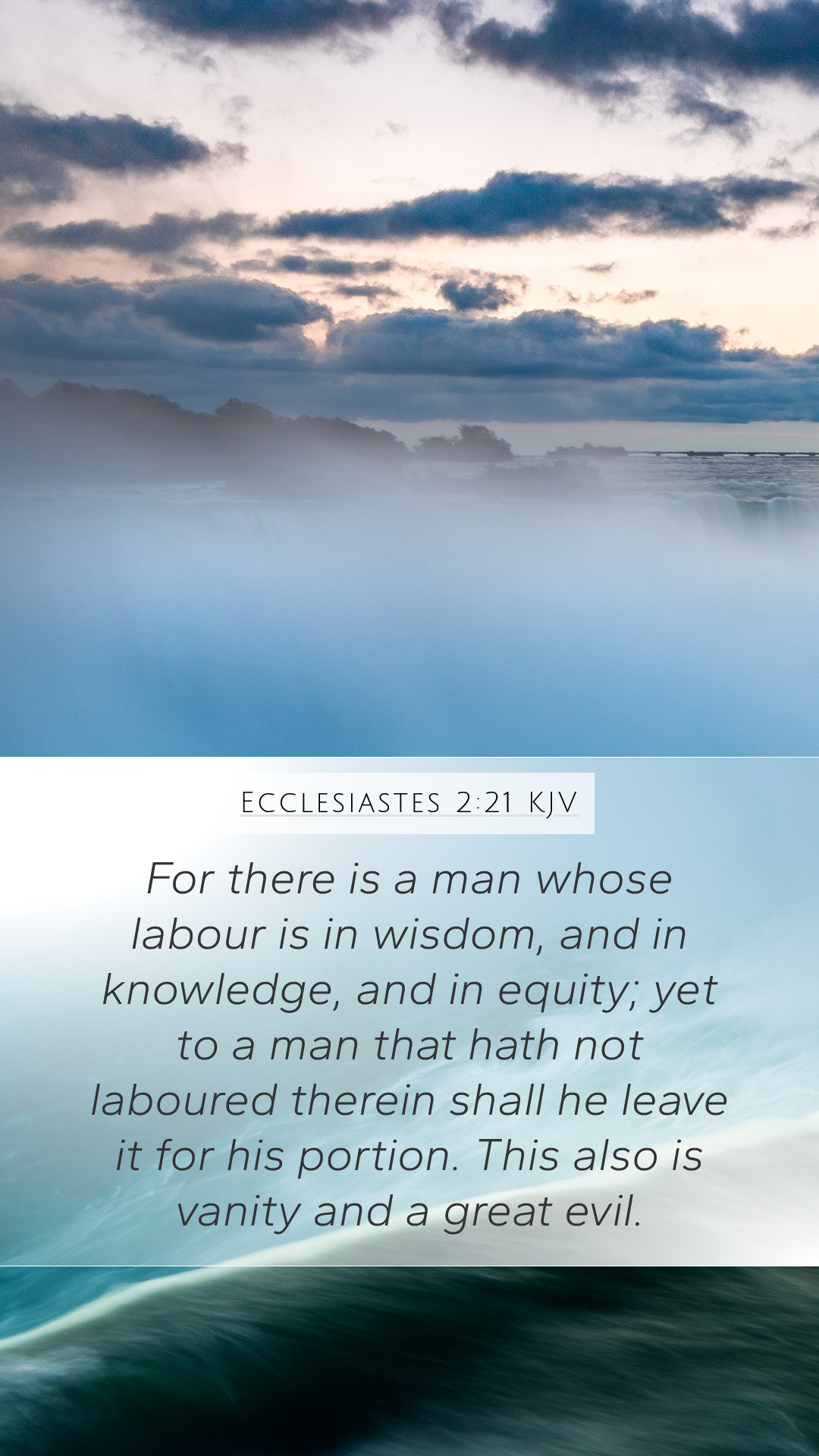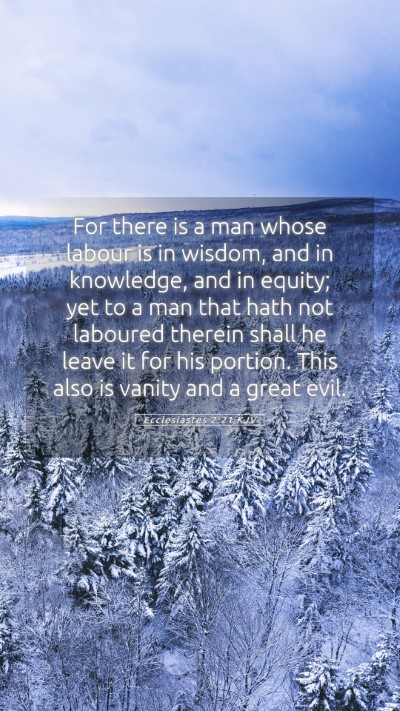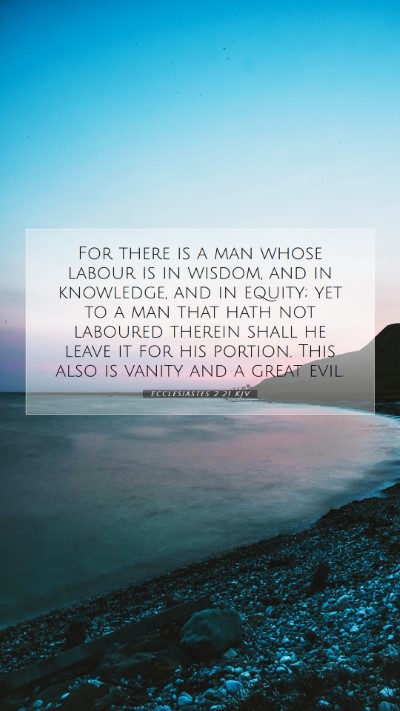Understanding Ecclesiastes 2:21
Verse Reference: Ecclesiastes 2:21
“For there is a man whose labor is done with wisdom, and knowledge, and skill; yet to a man who has not labored in it will he leave it for his portion. This also is vanity and a great evil.”
Bible Verse Interpretations
The verses in Ecclesiastes provide a profound commentary on the futility of human endeavor and the ultimate meaning of life. Ecclesiastes 2:21 highlights the paradox of work and inheritance, illustrating that the fruits of one’s labor may ultimately be left to those who did not exert the same effort.
Meaning of the Verse
The verse reflects on the reality that life can seem unjust, as the rewards of diligent labor can be passed on to others who did not invest the same effort. The author expresses a sense of disillusionment with this dynamic, implying that such an outcome is a form of vanity or emptiness.
Bible Verse Commentary
- Matthew Henry:
Matthew Henry suggests that this verse captures a deep truth about the nature of work and reward. He emphasizes the inevitability of death and how earthly possessions cannot be carried into the next life. The toil of one man might benefit someone who has not worked for it, which leads to feelings of frustration and pain.
- Albert Barnes:
Albert Barnes interprets this verse as a sobering reality about the transitory nature of wealth and labor. He notes that the intellectual and physical labor invested by one person can be inherited by another, raising questions about justice and equity in the distribution of benefits conferred by hard work.
- Adam Clarke:
Adam Clarke discusses the futility of human pursuits when separated from divine purpose. He highlights the temporal nature of earthly gains, asserting that all labor, unless connected with a higher purpose, lacks true value. Clarke also points out that wisdom is often underappreciated in a world driven by greed and selfish ambitions.
Scripture Analysis
This verse is a part of the larger meditative framework within Ecclesiastes, where the author wrestles with existential questions. Such reflections compel readers to consider their priorities in life and question the ultimate value of their pursuits.
Biblical Exegesis
From a theological perspective, the verse articulates a key theme in the Book of Ecclesiastes: the uncertainty of life and the ephemeral nature of earthly achievements. The author appears to grapple with the idea that often, the hard work of one generation is inherited by another, who may squander it away.
Applying Bible Verses to Daily Life
Understanding Ecclesiastes 2:21 can inspire reflection on how we view our own labors and inheritance. This verse challenges individuals to consider the lasting impact of their work and to find meaning that transcends mere material gain.
Insights for Bible Study Groups
In a group study context, this verse can prompt discussions about:
- The relationship between work, reward, and enjoyment of life.
- How to find purpose in our daily labor.
- The importance of generational stewardship of resources.
- The balance between striving for success and seeking spiritual fulfillment.
Cross References
- Proverbs 13:22: “A good man leaves an inheritance to his children’s children.”
- Ecclesiastes 3:18: “I said in my heart with regard to the children of man that God is testing them that they may see that they themselves are but beasts.”
- Luke 12:20-21: “But God said to him, ‘Fool! This night your soul is required of you, and the things you have prepared, whose will they be?’”
Conclusion
Ecclesiastes 2:21 serves as a vital reflection on the nature of life’s endeavors and the legacies we leave behind. Through the lens of public domain commentaries, readers can explore the depths of its meaning, gain insights into effective Bible study techniques, and discover how this verse can be applied to their lives.


